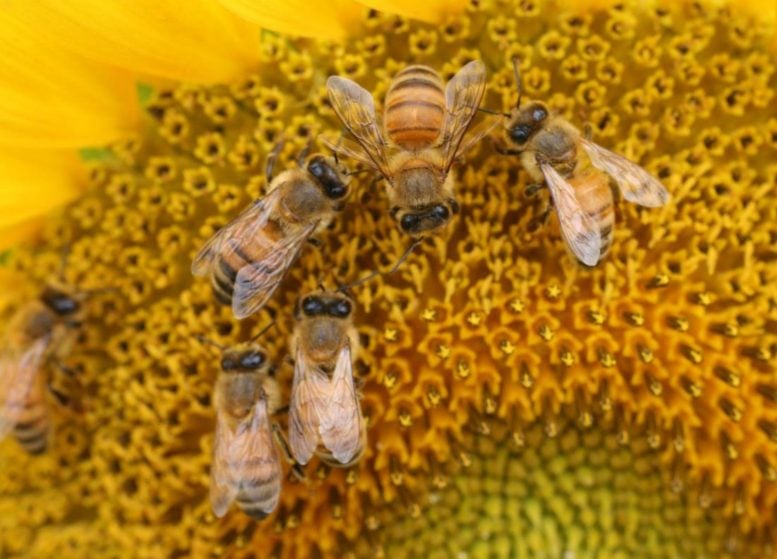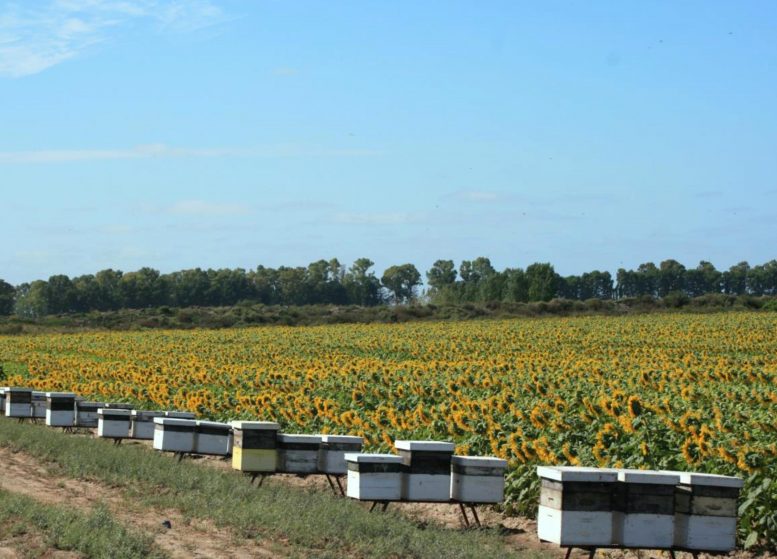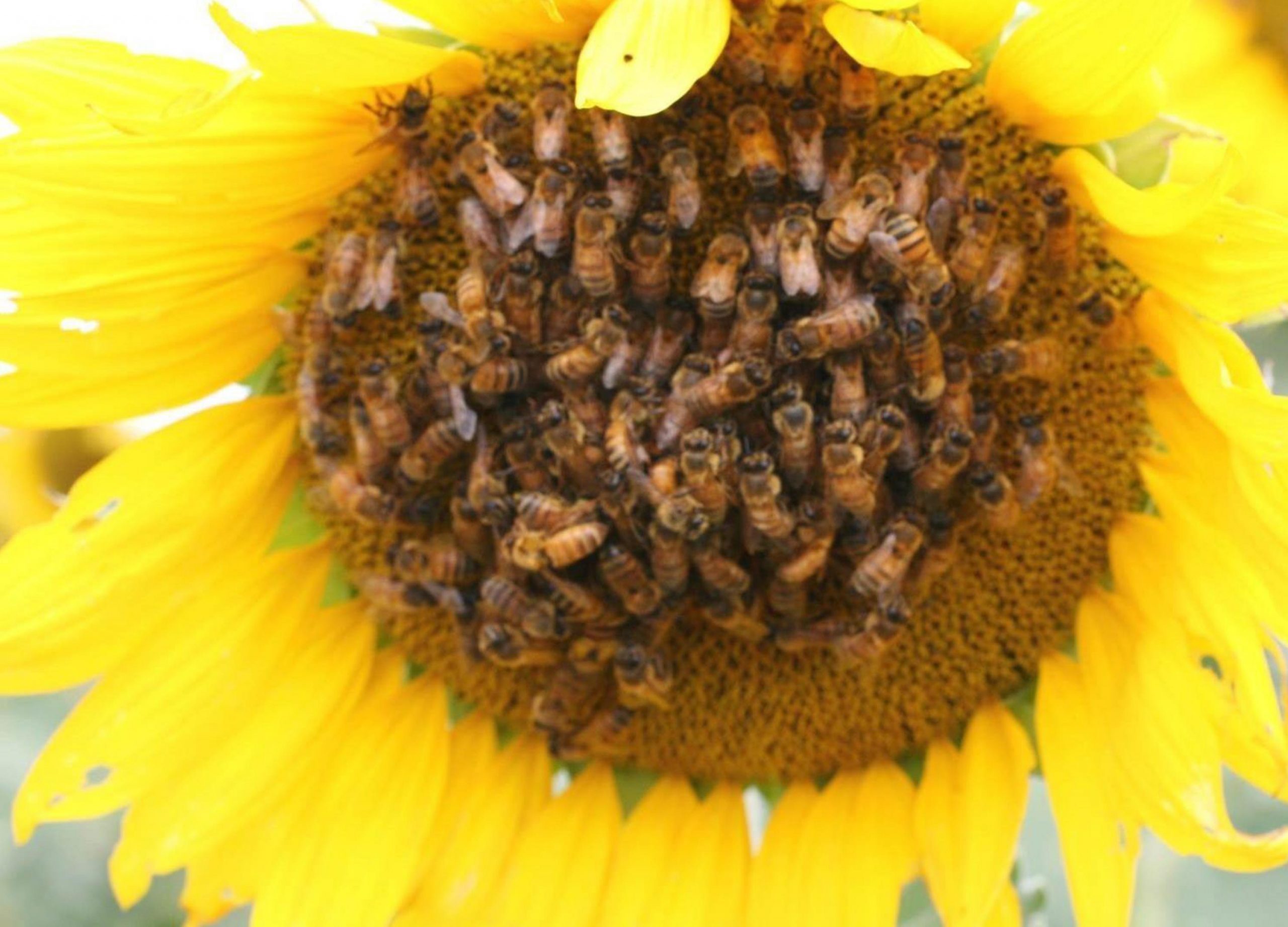This picture shows a large group of trained bees on a sunflower. Photo credit: Walter Farina
If you want a dog to chase something, it is helpful to have them smell something to pick up the scent. Researchers are now reporting in Current biology In September 2020, it was determined that scent training for honey bees in the beehive could work in a similar way – and that this approach could make bees more efficient at pollinating a desired crop. The results show that honeybees given scented foods that mimicked sunflowers supported a significant increase in sunflower production.
“We show that it is possible to induce honey bees to smell rewarded within the colony, and this experience later changes the bees’ odor-controlled behavior,” says Walter Farina from the Universidad de Buenos Aires, Argentina. “The most surprising and relevant result is that the food preferences for the target crop are so long and intense that crop yields are increased significantly.”

This picture shows bees on a sunflower. Photo credit: Walter Farina
Farina’s team had previously shown that honeybees can create a stable long-term memory in connection with food scents in the nest. They also knew that these memories in the beehive could influence the bees’ choice of which plants to visit later.
In order to raise bees with a memory that would support a later foraging for sunflowers, the researchers first developed a simple synthetic odorant mixture that the bees associate with the natural floral scent of sunflowers. Next, they fed the beehives with fragrant food. They found that these early experiences and memories of the smell of sunflowers influenced the bees’ later food preferences, which was inferred by deciphering their wobble dances.

This picture shows artificial beehives next to a sunflower field. Photo credit: Walter Farina
The bee training resulted in them visiting more sunflowers. These trained bees also brought more sunflower pollen back into the beehive. This increased visitation and foraging for sunflowers also increased the flower’s seed production by 29 to 57 percent.
“This process makes it possible to influence honeybees’ foraging and to significantly increase yields,” says Farina. “In other words, pollination services could be improved in pollinator-dependent crops by using simple scent mimicking as part of a precise pollination strategy.”
The researchers say they are now studying other pollinator-dependent crops, including almonds, pears and apples. Ultimately, their goal is to develop a number of new odor mimickers to improve the pollination efficiency and productivity of many important agricultural crops.
Reference: “Learning a facial odor in beehives improves the efficiency of the pollination service in a crop” by Walter M. Farina, Andrés Arenas, Paula C. Díaz, Cinthia Susic Martin and M. Cecilia Estravis Barcala, September 17, 2020, Current biology.
DOI: 10.1016 / j.cub.2020.08.018
This work was supported by FONCYT-ANPCYT, FONARSEC-ANPCYT, the University of Buenos Aires, and CONICET.



